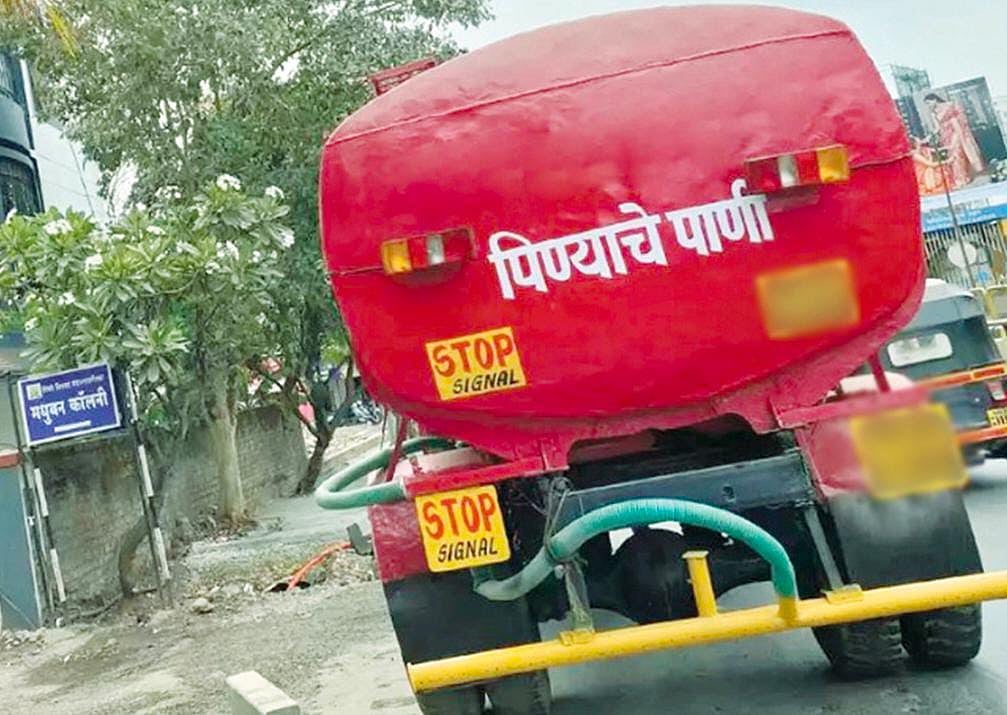Guillain-Barré Syndrome Outbreak In Pune: Fear Of GBS Pushes Residents Away From Private Water Tankers | Sourced
A sharp rise in Guillain-Barré Syndrome (GBS) cases along Sinhagad Road, particularly in Dhayari, Ambegaon, Nanded and Narhe, has triggered alarm among residents, leading to a drastic shift in water consumption habits. With the total number of cases crossing 140, residents are now opting for packaged drinking water over private tankers, causing a significant drop in demand for tanker water.
Previously, residents relied on private water tankers due to insufficient supply from the Pune Municipal Corporation (PMC). However, tanker suppliers are now facing a decline in business, with rates dropping from Rs 2,000–Rs 2,500 per 1,000 litres to Rs 1,500 within a week.
Concern over the water’s source may be the major reason behind the drop in demand.
Shweta Kulkarni, a Narhe resident, told The Free Press Journal (FPJ), “We used to depend on tanker water every alternate day. But with the GBS scare, we have completely stopped buying it. The supplier sources water from a private well in Narhe, and we cannot afford the risk.”
Sanjay Pote, a Nanded village resident, said, “We are drawing water from a neighbouring borewell and filtering it ourselves. Moreover, we have stopped purchasing water from private tankers.”
Water tanker businesses are facing major losses as demand plummets. A supplier, speaking anonymously, told the FPJ, “We were supplying 70 to 80 tankers daily to the newly merged villages, but there is a shortfall in demand. This has led to a drastic drop in tanker rates.”
A local grocery owner revealed, “People are stocking up on bottled water like never before. Sales of packaged water bottles have doubled in the past few days.”
The crisis has highlighted long-standing water safety issues in Sinhagad Road’s newly merged villages, where a significant portion of the population depends on tanker water. Most of the region’s supply comes from Khadakwasla Dam, but residents claim it is often lifted without proper treatment.
PMC’s health chief Dr Nina Borade acknowledged the severity of the situation, stating, “While Campylobacter jejuni infections are typically foodborne, waterborne transmission cannot be ruled out. We are actively testing water samples to determine the source.”
Despite rapid urbanisation, the lack of a dedicated water treatment plant remains a glaring issue. A proposal for a filtration facility has been pending for over a year. Until a long-term solution is implemented, residents remain in limbo, forced to choose between dwindling tanker supplies and expensive packaged water.
PMC finds E. coli in pvt tanker water
A Pune Municipal Corporation (PMC) report released on Friday revealed alarming levels of coliform and E. coli contamination in 15 water samples collected from private tanker sources supplying neighbourhoods reporting GBS cases. 14 samples tested positive for E. coli, with counts exceeding 16 per 100 ml, far above the safe limit of zero.
The contaminated sources were used by tankers supplying Dhayari, Sinhagad Road, and Kirkatwadi—areas with a high number of GBS cases. Kirkatwadi alone reported 18 cases by January 28. The presence of E. coli indicates potential contamination by other harmful pathogens, raising serious concerns about water safety.
PMC officials have intensified testing and are urging residents to avoid untreated water. The findings highlight the urgent need for improved water treatment and stricter regulation of private tankers in the region.
